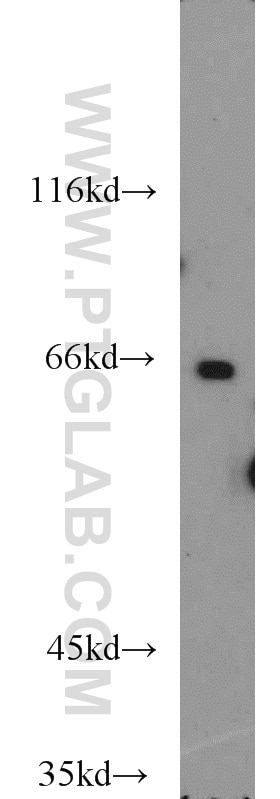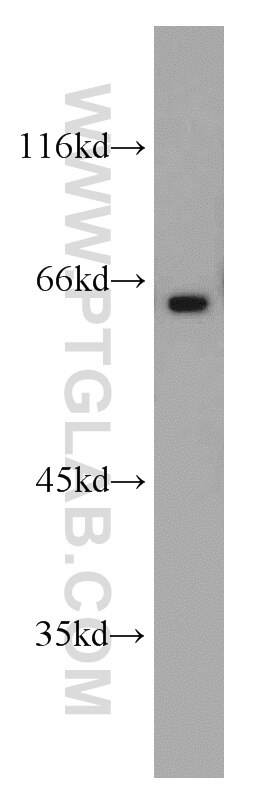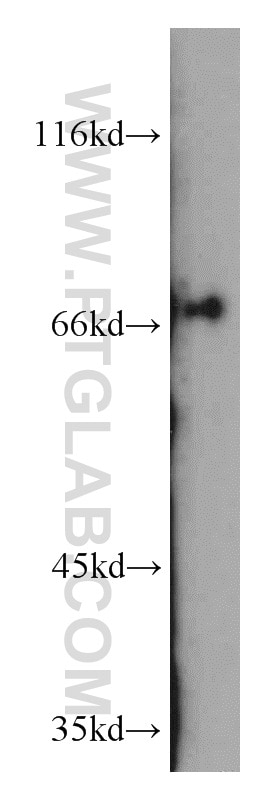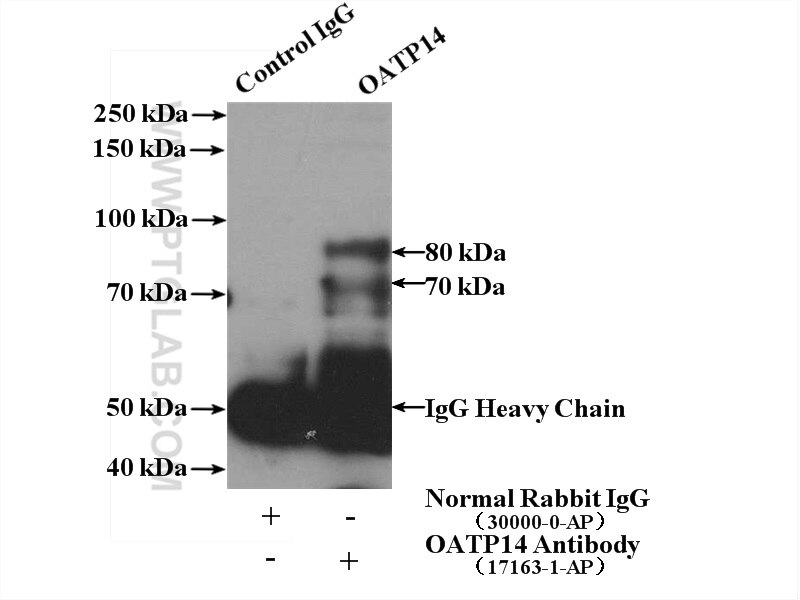Anticorps Polyclonal de lapin anti-OATP14
OATP14 Polyclonal Antibody for WB, IP, ELISA
Hôte / Isotype
Lapin / IgG
Réactivité testée
Humain, rat, souris
Applications
WB, IP, ELISA
Conjugaison
Non conjugué
N° de cat : 17163-1-AP
Synonymes
Galerie de données de validation
Applications testées
| Résultats positifs en WB | cellules PC-3, tissu cérébral de souris, tissu rénal de souris |
| Résultats positifs en IP | tissu cérébral de souris |
Dilution recommandée
| Application | Dilution |
|---|---|
| Western Blot (WB) | WB : 1:500-1:1000 |
| Immunoprécipitation (IP) | IP : 0.5-4.0 ug for 1.0-3.0 mg of total protein lysate |
| It is recommended that this reagent should be titrated in each testing system to obtain optimal results. | |
| Sample-dependent, check data in validation data gallery | |
Applications publiées
| WB | See 2 publications below |
Informations sur le produit
17163-1-AP cible OATP14 dans les applications de WB, IP, ELISA et montre une réactivité avec des échantillons Humain, rat, souris
| Réactivité | Humain, rat, souris |
| Réactivité citée | Humain, souris |
| Hôte / Isotype | Lapin / IgG |
| Clonalité | Polyclonal |
| Type | Anticorps |
| Immunogène | OATP14 Protéine recombinante Ag10573 |
| Nom complet | solute carrier organic anion transporter family, member 1C1 |
| Masse moléculaire calculée | 712 aa, 79 kDa |
| Poids moléculaire observé | 62-70 kDa |
| Numéro d’acquisition GenBank | BC022461 |
| Symbole du gène | SLCO1C1 |
| Identification du gène (NCBI) | 53919 |
| Conjugaison | Non conjugué |
| Forme | Liquide |
| Méthode de purification | Purification par affinité contre l'antigène |
| Tampon de stockage | PBS avec azoture de sodium à 0,02 % et glycérol à 50 % pH 7,3 |
| Conditions de stockage | Stocker à -20°C. Stable pendant un an après l'expédition. L'aliquotage n'est pas nécessaire pour le stockage à -20oC Les 20ul contiennent 0,1% de BSA. |
Protocole
| Product Specific Protocols | |
|---|---|
| WB protocol for OATP14 antibody 17163-1-AP | Download protocol |
| IP protocol for OATP14 antibody 17163-1-AP | Download protocol |
| Standard Protocols | |
|---|---|
| Click here to view our Standard Protocols |
Publications
| Species | Application | Title |
|---|---|---|
Toxicol Sci Hepatic, metabolic and toxicity evaluation of repeated oral administration of SnS2 nanoflowers in mice. | ||
Toxicology BDE209-promoted Dio2 degradation in H4 glioma cells through the autophagy pathway, resulting in hypothyroidism and leading to neurotoxicity |





